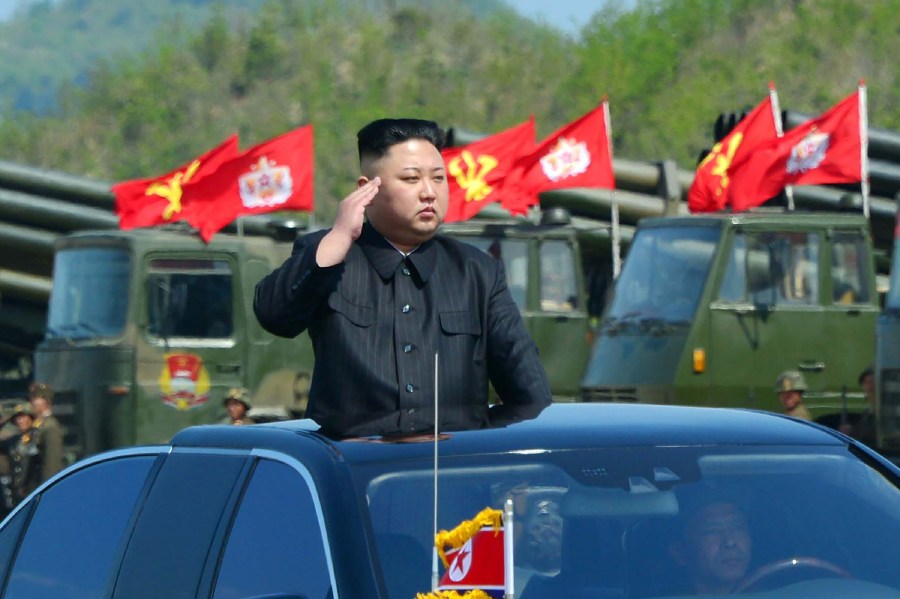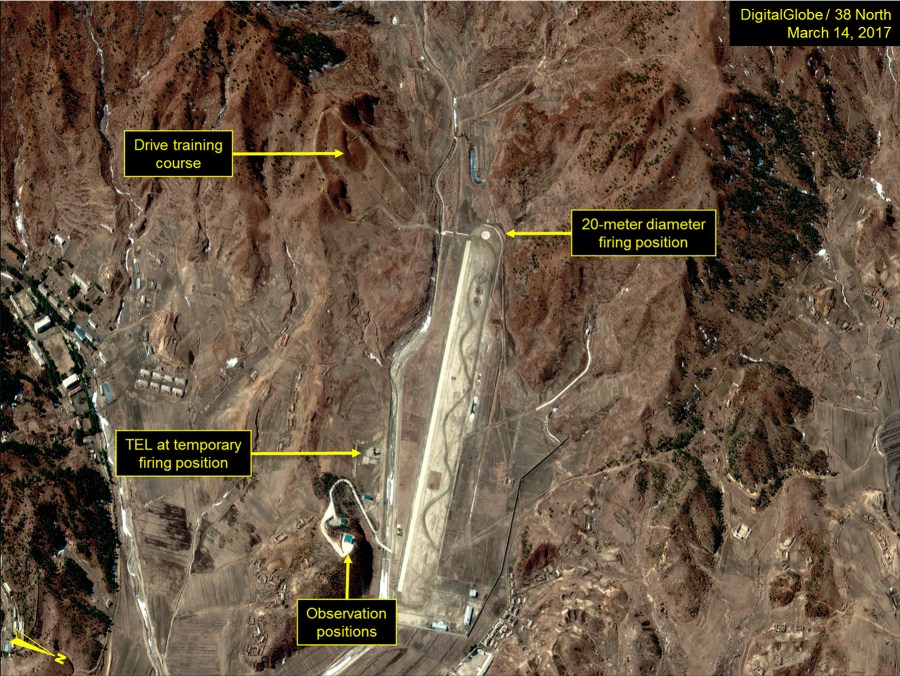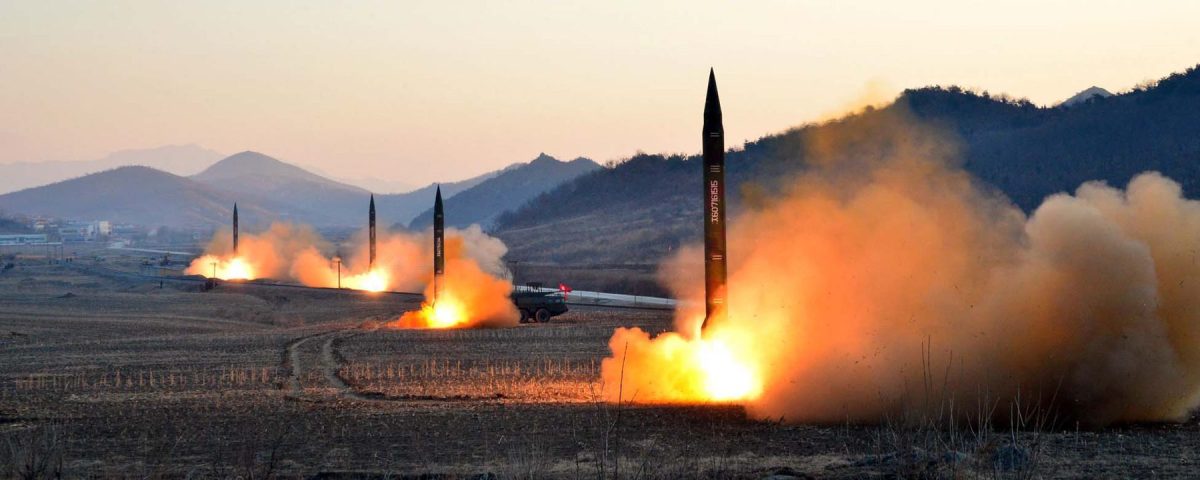Editor’s Note: This article was originally published May 3. We are running it again because of President Trump’s comments about “the dangers posed by North Korea.”
R.P. Eddy is a former Director of the White House National Security Council and senior U.S. diplomat. He is the CEO of Ergo.
President Trump recently warned that a “major, major conflict” with North Korea is possible. He may be right. Given the escalation of rhetoric from North Korean leader Kim Jong Un—with the country’s official newspaper warning Tuesday that the U.S. could face a “preemptive nuclear strike” on its mainland—there is no greater potential global flashpoint. Despite the recent spike in news coverage, the mainstream media as well as some key decision makers seem to be missing seven critical facts.
The Bad News:
1. Up to 15,000 North Korean artillery pieces are aimed at Seoul. North Korea has been digging in and preparing for this stand-off since the 1960’s, stacking and hiding missiles and artillery in the hills and mountains of its border with South Korea. Many of these weapons will carry chemical weapons (more below). The artillery’s lethality is often debated, but there is a persistent belief these weapons could turn nearby Seoul, home to approximately 25 million, into a “sea of fire.”
2. North Korea may want something the U.S. can’t give. Here is the critical question: Are the Kims irrational expansionists who will only accept complete control of the entire Korean peninsula, or cornered hermits just hoping to survive? Neither Trump nor Chinese President Xi—nor even the North Korean people—really know the answer. This makes us nervous: The previous two leaders of North Korea negotiated international disarmament frameworks which guaranteed Pyongyang’s security, yet it was they who broke each one.
3. Kim Jong Un killed his brother with the nastiest chemical weapon ever made, so you would know he can. There’s an ongoing debate among experts about whether North Korea has successfully “miniaturized” a nuclear weapon to fit it on a long-range missile. That’s an unknown, but what here’s what we do know: The country has deadly chemical weapons which could be launched at South Korea or Japan. They demonstrated this capability earlier this year, when North Korean operatives used a nerve agent called VX to murder Kim Jong-nam, the half-brother of North Korean dictator Kim Jong-un.

4. There’s no clean military solution: While the United States has reportedly been considering a military strike on either North Korean nuclear facilities or the leadership elite, such an attack is unlikely to succeed and could trigger a barrage from the Seoul-directed artillery.
5. One horrible, but potentially realistic, U.S. response could be condemned as criminal if ordered by Trump: Last month, former Secretary of Defense Ash Carter said about an attack on North Korea, “We’ve always had all options on the table… I wouldn’t take any off.” Were North Korea to commence a massive artillery barrage on Seoul, and especially if they used chemical or biological weapons, one potential U.S. response could be nuclear retaliation against Pyongyang and/or their artillery at the border. (Perhaps dialing down the “variable yield” of our B-61 nuclear bombs to reduce radioactive fallout and civilian casualties). As outlandish as this response may seem right now, some U.S. war planners do not think so; it could be considered “proportional” and therefore within the laws of armed conflict. If a nuclear bombing were ordered under Obama–who was widely perceived as thoughtful and hesitant to use force—the world may have been largely willing to listen to his logic. Unfortunately, because much of the international community views President Trump as reactive, even unstable, any such U.S.-initiated action would likely be met by ferocious global condemnation. This perception of our President may be a tactical consideration for our war planners led by the very talented head of Pacific Command, Adm. Harry Harris.
6. Even a small nuclear exchange could trigger a global nuclear winter: Those who grew up in the 80’s likely remember the highly publicized fear of worldwide dramatic cooling that would follow a US-Soviet nuclear war. Science now tells us that even a small exchange between countries such as India and Pakistan or in North Korea, could cause a decade-long, “catastrophic” nuclear winter.
7. There will likely be a ripple effect that goes all the way to your cellphone: South Korea is home to a huge concentration of manufacturing facilities for the components of cell phones, batteries, and small screens. Samsung and other global tech titans have made the country a locus of their electronics sourcing and fabrication. A destabilization of the Korean peninsula would have a devastating impact on the supply of key technologies that power the global electronics market, causing prices to spike.
The Good News:
When it comes to Pyongyang, there really isn’t any. Is there such a thing as a totally intractable national security challenge?
Ergo delivers frontline intelligence on critical issues across the globe. Ergo supplies “ground truth” that others can’t access by tapping into a range of unique data streams, including a proprietary network of well-placed in-country assets. Leading investors, Fortune 500 corporations, law firms, and the US and allied governments rely on Ergo to stay ahead of markets, headlines, and competitors. Harvard Business Review said Ergo is “breaking from industry orthodoxy” with a “radically new model” of consulting. Click here to find out more about Ergo.

This article appeared in an InsideHook newsletter. Sign up for free to get more on travel, wellness, style, drinking, and culture.

























